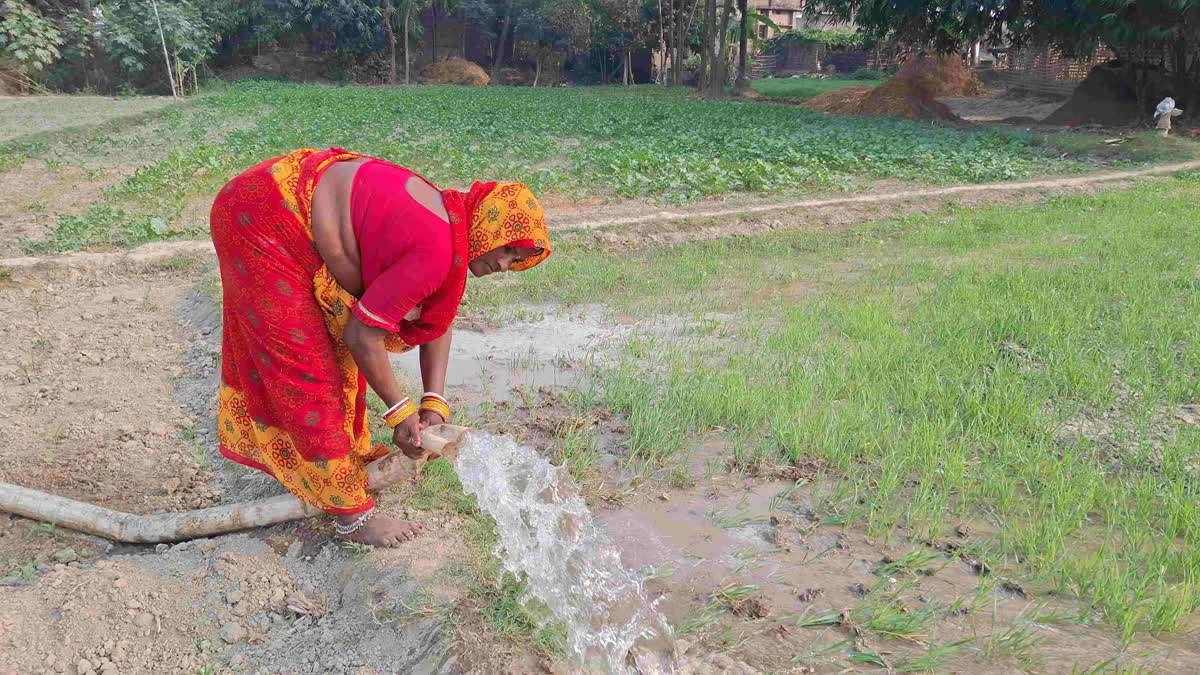Muzaffarpur: Two women have brought winds of change to Ratanpura village in Muzaffarpur’s Bochahan block by introducing solar energy to irrigate the farmlands. Baleshwari Devi and Usha Devi not only became the faces of change for farmers, they helped small-holding farmers irrigate their fields at lower costs while encouraging others to embrace entrepreneurship.
Until 2023, Baleshwari and Usha were restricted to household chores and livestock like most women in the village. But once they decided to take the reins of their lives into their own hands and adopted solar-powered irrigation pumps, the entire village looked up to them as change makers. Apart from using the energy in their own fields, they turned entrepreneurs by providing other farmers water at affordable prices by supplying solar energy based irrigation facility. This boosted their morale as much as increased their income.
Irrigation has always been a costly affair for farmers in Muzaffarpur. While diesel pumps are expensive, frequent power cuts make electric pumps unreliable. Solar pumps, however, have come as a change for good.
“Most farmers here own very small plots, barely a kattha or two. The high cost of diesel and electricity made irrigation a struggle for them,” says Usha Devi. “With solar pumps, we can irrigate up to four kattha of land in an hour for just Rs 100. Diesel costs Rs 150– Rs 200 for the same, and electricity isn’t much cheaper.”
The pumps, which run on sunlight and need no fuel, have made irrigation accessible and reliable. Farmers now worry less about rising diesel prices or power outages and can focus on growing better crops.
The benefits of solar irrigation extend beyond just cutting costs. Solar-powered pumps are helping farmers grow a wider range of crops, including cash crops like vegetables, in addition to staples like paddy and maize. The better yields mean higher profits.
Baleshwari Devi, on the other hand, speaks on how solar energy has changed the status of migration. “Earlier, many young people left for cities to work. Now, they find jobs here, either on farms or helping with the pumps,” she explains. Besides, in many places, small farmers were forced to buy water from neighboring farmers but that has stopped now, she adds.
